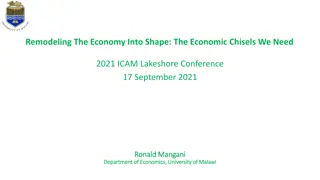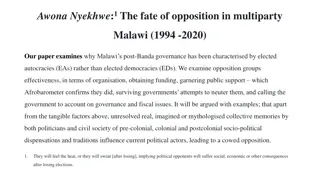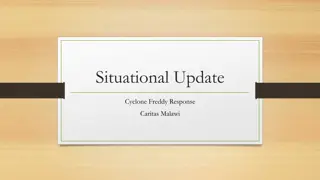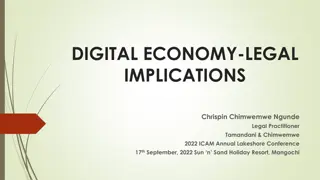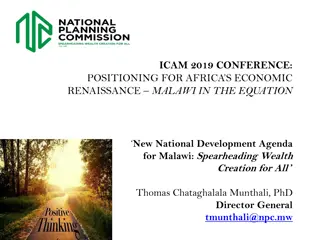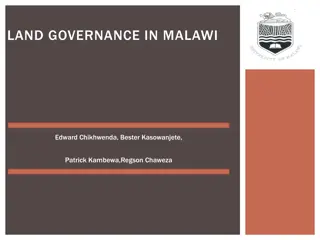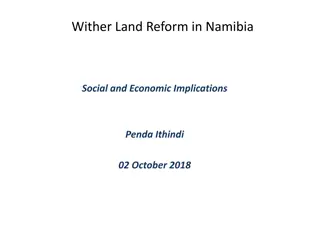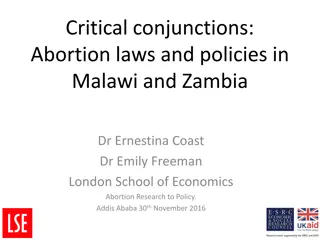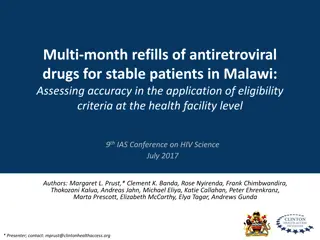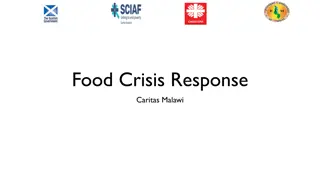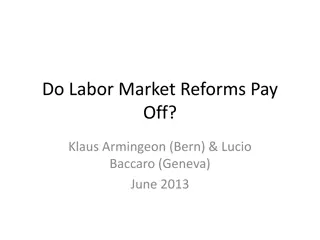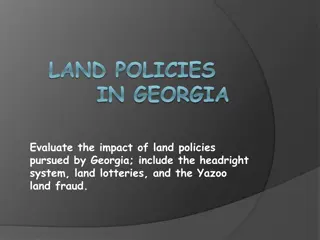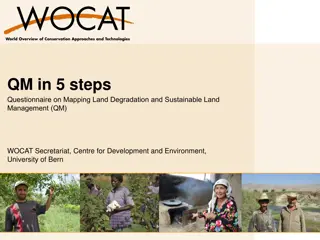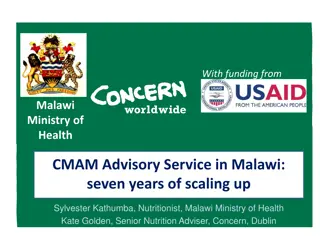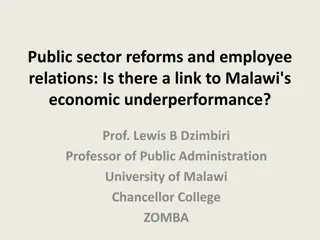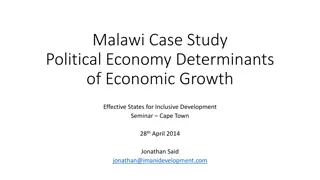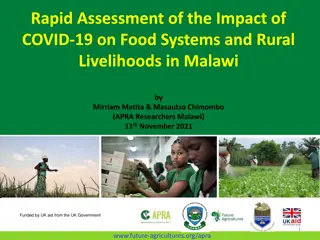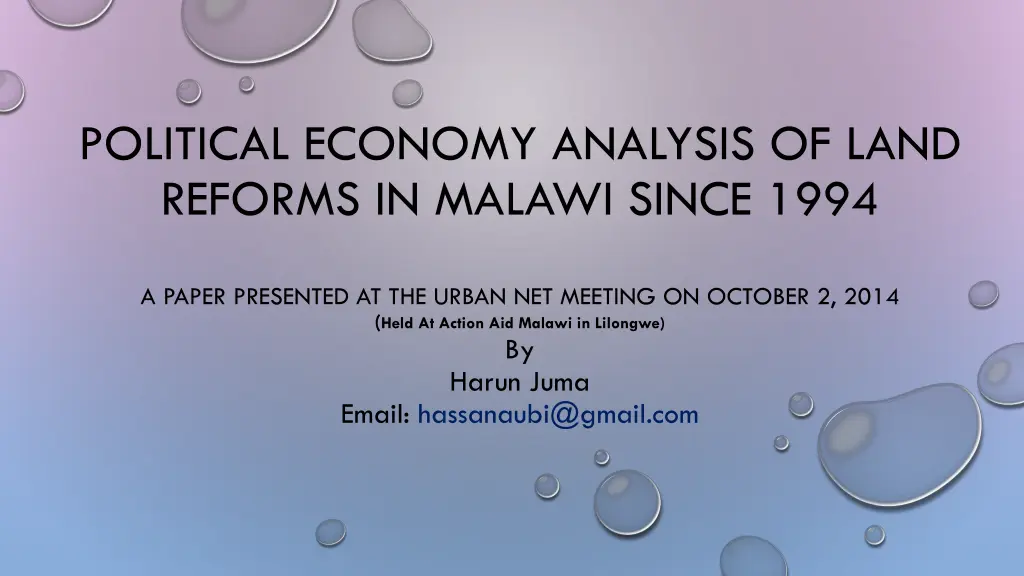
Analysis of Land Reforms in Malawi Since 1994
Explore the political economy analysis of land reforms in Malawi since 1994, focusing on the need for reform, developments post-1994, stalled progress, and the importance of political economy analysis in addressing the challenges. Discover the key actors, interests, and nature of reform in this insightful paper presented at the Urban.net meeting in 2014.
Download Presentation

Please find below an Image/Link to download the presentation.
The content on the website is provided AS IS for your information and personal use only. It may not be sold, licensed, or shared on other websites without obtaining consent from the author. If you encounter any issues during the download, it is possible that the publisher has removed the file from their server.
You are allowed to download the files provided on this website for personal or commercial use, subject to the condition that they are used lawfully. All files are the property of their respective owners.
The content on the website is provided AS IS for your information and personal use only. It may not be sold, licensed, or shared on other websites without obtaining consent from the author.
E N D
Presentation Transcript
POLITICAL ECONOMY ANALYSIS OF LAND REFORMS IN MALAWI SINCE 1994 A PAPER PRESENTED AT THE URBAN NET MEETING ON OCTOBER 2, 2014 (Held At Action Aid Malawi in Lilongwe) By Harun Juma Email: hassanaubi@gmail.com
WHY DO WE NEED A LAND REFORM IN MALAWI Agriculture is a major source of livelihood in rural areas & a tool for economic growth and poverty reduction in More than 80% of Malawians earn their livelihoods from agriculture 55% of smallholder farmers cultivate less than a hectare Yet 30,000 estates are cultivating between 10 to 500 hectares. And about 28% of the country s cultivable arable land (about 2.6 million hectares) under freehold, lies idle in the rural areas Strong land laws will help to facilitate proper urban development
WHY ANALYSIS FROM 1994 1994 democratization was a critical juncture offering some policy windows e.g. Land reform Most Malawian had the expectations that the question of land will be solved completely Political parties used land reform as a campaign tool
WHAT HAPPENED AFTER 1994? Land reform was initiated by the UDF government (1994) It passed on to the DDP led government in To the PP led government (2009-2014) Today is almost 20 years in Democracy and nothing tangible has happened! A land bill was just passed last year (Land Bill 2013) (2004-2009)
WHY IS LAND REFORM STILL HANGING? It is because of lack of political will? No? Its beyond political Will We need to do a political economy analysis
WHAT IS POLITICAL ECONOMY Political economy analysis focuses on the interaction between politics and economics. It examines the influence of economics and politics in development interventions Politics: power and distribution of resources Economics: production, allocation and consumption
Are actors: Politicians, Estate owners, The state, chiefs, NGOs, investors, local people Stakeholders & Interests NATURE OF REFORM: Which actor has more power? How is that power used? How can we negotiate that power? Power & Politics Pro Poor Or Pro rich Rules of the game: formal and informal Limits the actions of actors in reform Institutions LAND REFORM PROCESS
IMPLICATIONS OF LACK OF LAND REFOMS ON URBAN DEVELOPMENT Scarcity of land in rural areas is a push factor for people to migrate to urban areas - a livelihood coping strategy >> congested settlements There is a link between the nature of laws governing land and infrastructure being developed >>poor tenure systems is one of the factors hindering the efficient growth of cities in developing countries- Dawall and Clarke
- Contd Poor settlements promotes inefficient land use and accelerates land scarcity issues in urban areas Vulnerability: Unsecure land rights especially among urban poor
CONCLUSION Land reform in Malawi is caught in competing objectives between the state and private sector on one hand and local communities on the other The poor man and the poor woman are the losers Most importantly the prospects of a well planned urban development are being stifled


